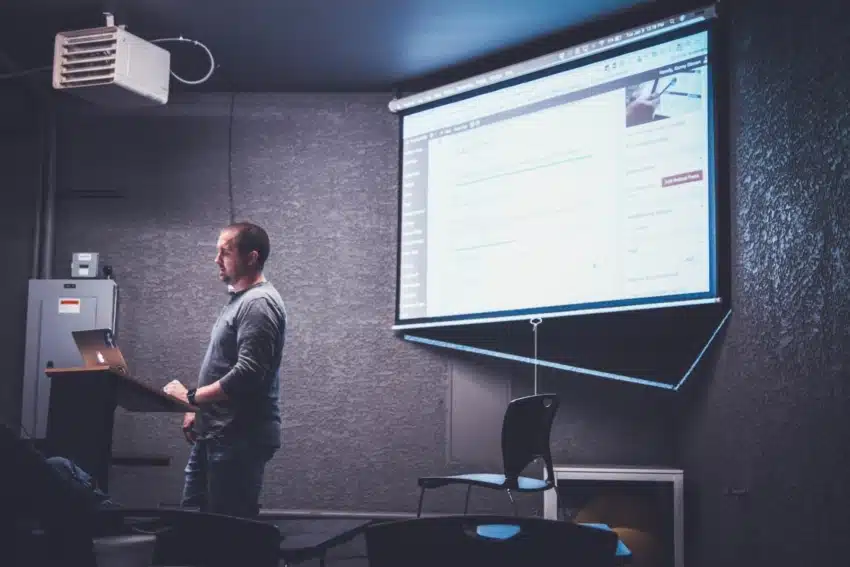10 Best Master’s Degrees for Teachers: A Detailed Comparison
Updated: April 7, 2025

If you’re thinking about taking the next step in your teaching career, getting a master’s degree could open up a world of opportunity. Whether you want to deepen your knowledge, specialize in a certain area, or move into leadership, there’s a master’s program that fits your goals. But with so many options out there, how do you choose the right one?
This guide breaks down the 10 best master’s degrees for teachers. You’ll see what each degree is all about, who it’s best for, and what kind of jobs it can lead to—so you can make an informed decision that fits your career path and lifestyle.
Source: Unsplash
What Is a Master’s Degree for Teachers?
A master’s degree for teachers is a graduate-level program that helps you build on your existing knowledge and experience in education. Most programs take between 1–2 years to complete and focus on advanced teaching strategies, education theory, classroom leadership, and sometimes specific subjects like math, science, or reading.
There are different types of master’s degrees depending on what you want to do. Some are great if you’re just starting out in teaching, while others are better suited for experienced educators looking to specialize or move into administrative roles.
If you already have a bachelor’s degree and classroom experience, a master’s can help you earn more, take on new responsibilities, and have a bigger impact—whether in a school, a district, or even outside the traditional classroom.
Source: Unsplash
Why Teachers Pursue a Master’s Degree
There are plenty of good reasons teachers go back to school for a master’s—some practical, some personal. For many, it’s about leveling up in their careers. A master’s degree can help you qualify for higher-paying roles, leadership positions, or specialized jobs that require more advanced training.
But it’s not just about money or job titles. A lot of teachers choose to pursue a master’s because they genuinely want to become better at what they do. You’ll dive deeper into educational theory, explore new teaching methods, and learn how to support different kinds of learners more effectively. It’s a chance to reflect on your teaching style, strengthen your skills, and grow as an educator.
And if you’re thinking long-term, a master’s degree can also make you more competitive in the job market—especially if you’re aiming for roles in school administration, curriculum development, or educational policy.
Whether you’re looking to specialize, change directions, or simply stay up to date in a fast-changing field, a master’s degree can be a smart and meaningful step forward.
Top 10 Master’s Degrees for Teachers
Not all teaching careers follow the same path, and that’s why there are different types of master’s degrees to choose from. Some focus on classroom teaching, others on leadership or curriculum design. Here are ten popular options that can help you move forward, depending on where you want to go next in your career.
Master of Education (M.Ed.)
The M.Ed. is one of the most versatile degrees for teachers. It’s ideal if you’re already working in education and want to take your knowledge to the next level. Most M.Ed. programs focus on improving teaching methods, understanding how students learn, and applying educational research in the classroom. You can also specialize in areas like literacy, assessment, or instructional design, depending on your interests.
Master of Arts in Teaching (MAT)
If you have a bachelor’s degree in another field but want to become a certified teacher, the MAT can help you make that transition. These programs are usually more hands-on and classroom-focused, often including student teaching as part of the curriculum. You’ll learn how to manage classrooms, plan lessons, and support students from day one—perfect if you’re starting fresh in education.
Master’s in Curriculum and Instruction
This degree is all about what students learn and how they learn it. If you enjoy shaping content, improving teaching strategies, and helping other educators, curriculum and instruction could be a great fit. You’ll explore instructional models, learning theory, and ways to evaluate student progress. It’s especially useful if you’re interested in becoming an instructional coach or curriculum specialist.
Master’s in Educational Leadership
For those who want to step into leadership roles—like principal, assistant principal, or even district-level positions—this degree focuses on managing schools and driving change. You’ll study education law, school finance, leadership theory, and how to support both teachers and students at an organizational level. It’s a good next step if you’re already a teacher and want to expand your impact beyond the classroom.
Source: Unsplash
Master’s in Special Education
This program is designed for teachers who want to support students with special needs. You’ll learn how to create inclusive lesson plans, use assistive technologies, and adapt instruction to meet individual learning challenges. Many programs also cover behavior management and legal frameworks like IEPs (Individualized Education Programs). It’s a deeply rewarding path for teachers who are passionate about equity and accessibility in education.
Master’s in Early Childhood Education
If you love working with young children, this degree helps you understand how kids develop and learn during their early years. You’ll study topics like child psychology, language development, and family engagement, along with creative teaching strategies for preschool and early elementary levels. It’s a great fit if you’re passionate about setting a strong educational foundation for young learners.
Sourse: Unsplash
Master’s in STEM Education
A master’s in STEM (Science, Technology, Engineering, and Mathematics) is ideal if you want to focus on teaching these high-demand subjects. These programs dive into both content knowledge and innovative teaching methods, like project-based learning or using technology in the classroom. You’ll also explore how to get students excited about critical thinking and problem-solving—skills that are in demand everywhere.
Master’s in Higher Education
This degree is for educators who want to work at the college or university level. Whether you’re interested in academic advising, student affairs, or teaching in higher ed, the program covers topics like adult learning theory, policy, administration, and support services. If you’re looking to move out of the K–12 space and into postsecondary education, this is the path for you.
Master’s in TESOL (Teaching English to Speakers of Other Languages)
If you enjoy language and multicultural learning environments, a TESOL degree prepares you to teach English to non-native speakers. You’ll learn about second language acquisition, cultural differences, and strategies for helping students build communication skills. You can use this degree both in the U.S. and abroad—there’s a strong global demand for qualified English teachers.
Master’s in Reading and Literacy
This program is all about helping students become strong, confident readers. You’ll focus on how children (and adults) learn to read, how to diagnose reading challenges, and how to support literacy across different grade levels. It’s a great option if you want to become a reading specialist, literacy coach, or support struggling readers in your school or district.
Career Paths with a Master’s in Education
One of the biggest benefits of earning a master’s degree in education is the range of career opportunities it can open up. Whether you want to stay in the classroom, move into leadership, or explore roles outside traditional schools, your options expand significantly.
With a master’s, you could become a department head, curriculum specialist, instructional coach, or school administrator. Some teachers use their degree to transition into roles in education policy, nonprofit work, or corporate training. You might even find opportunities in educational technology, designing tools and resources to support learning in digital environments.
If you’re passionate about helping other educators grow, you could step into teacher training or professional development. And if research or higher education is your thing, a master’s can be a stepping stone toward a doctorate or university-level teaching.
Source: Unsplash
Best Online Master’s Programs for Teachers
University of California – Los Angeles, California
If flexibility matters to you—whether you’re balancing work, family, or geography—online programs make earning a master’s degree much more accessible. Many top universities now offer fully online or hybrid master’s degrees designed specifically for working educators.
Here are a few well-regarded online options:
University of the People
A tuition-free, accredited university offering an M.Ed. with specializations in elementary/middle school and secondary education. The program is 100% online and designed to help you develop practical skills in learning theory, assessment, child development, and more—all while staying budget-friendly.
University of Texas at Arlington
Offers several online master’s programs in curriculum and instruction, with special focus areas like literacy, math, or science education. Each program is designed to be completed in under two years and is tailored to classroom teachers.
Source: Unsplash
American College of Education
Known for affordability and quality, ACE offers online master’s programs in curriculum and instruction, educational leadership, and more. Courses are aligned with national and state standards and focus on practical, evidence-based teaching strategies.
University of Southern California (USC Rossier)
Offers a well-regarded online Master of Arts in Teaching. It includes fieldwork in your local area and emphasizes social justice and equity in education. It’s a strong option if you’re looking for a well-rounded, research-based program from a respected institution.
Source: Unsplash
Final Thoughts
There’s no one-size-fits-all answer when it comes to the best master’s degree for teachers—it really depends on where you see yourself going. Whether you want to stay in the classroom, lead a school, or support education in a different way, there’s a program that can help you get there.
If you’re looking for a flexible, affordable, and accredited way to earn your degree, the University of the People offers an online Master of Education program designed with working teachers in mind. It’s a great option if you want to grow your skills without putting your career on hold.
Ready to take the next step? Explore the UoPeople M.Ed. program and see how far your teaching career can go.
FAQs
Do I need a master’s degree to be a teacher?
Not always. In many places, a bachelor’s degree and teaching certification are enough to get started. But a master’s can help you advance, increase your salary, and qualify for specialized or leadership roles.
How long does it take to complete a master’s degree in education?
Most programs take 1 to 2 years of full-time study. If you’re working while studying, part-time options might take a little longer—but many online programs are designed to be flexible.
Can I get a master’s in education online?
Absolutely. Many accredited universities, like UoPeople, offer high-quality online programs. These are especially useful if you’re working full time or need a more flexible schedule.
Is a master’s degree worth it for teachers?
It depends on your goals. If you want to grow professionally, increase your earning potential, or take on a new role, a master’s degree is often a worthwhile investment.







